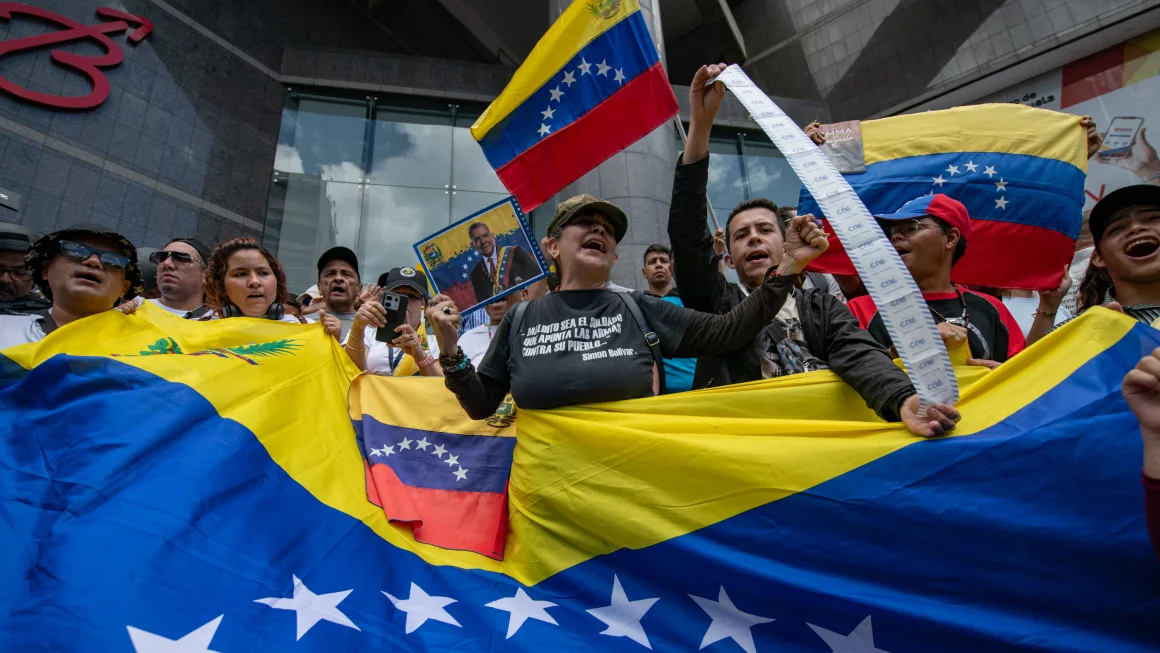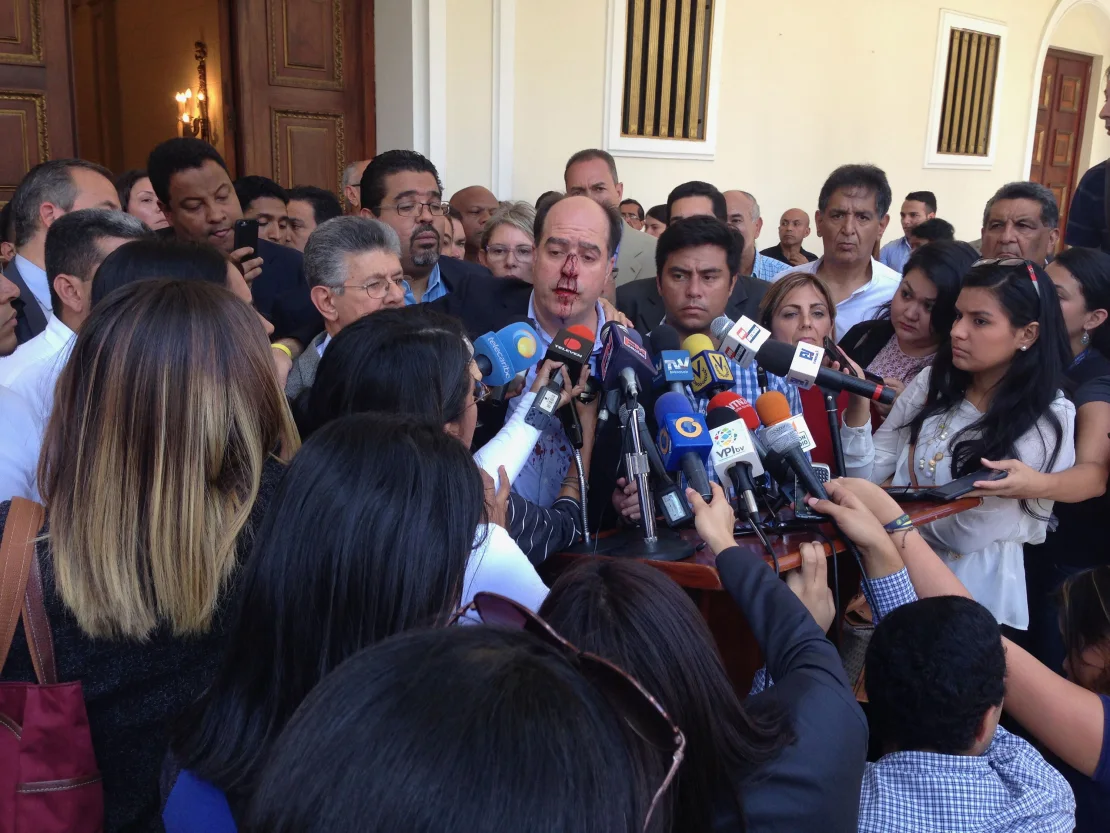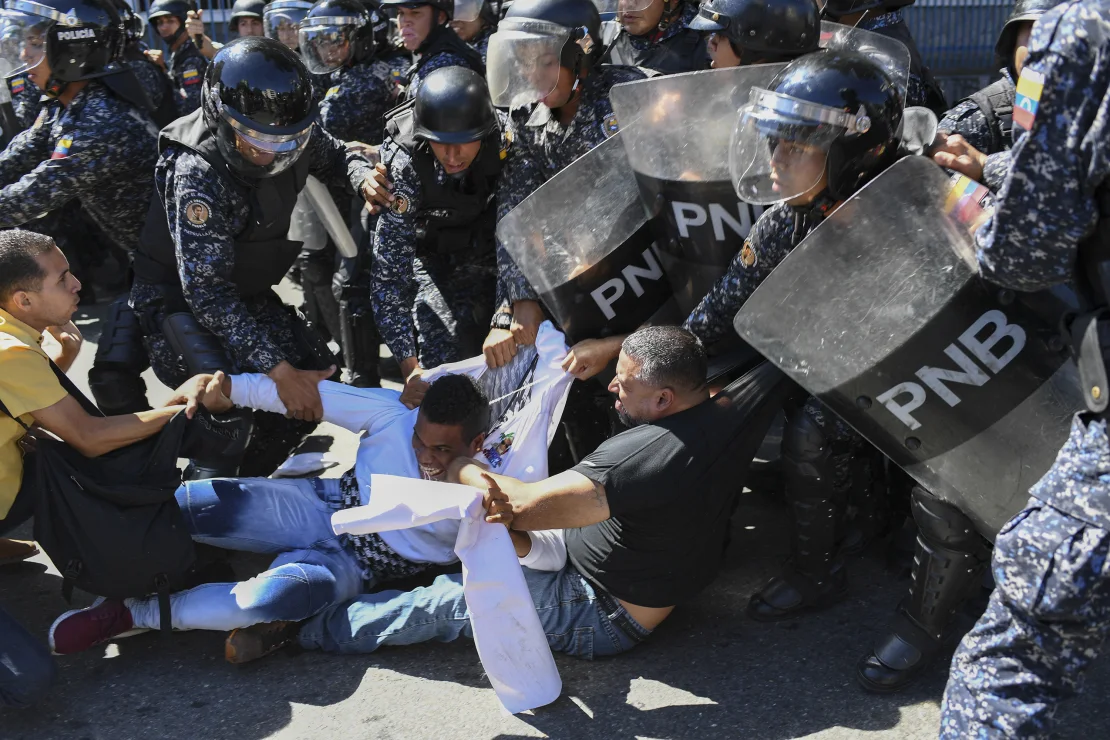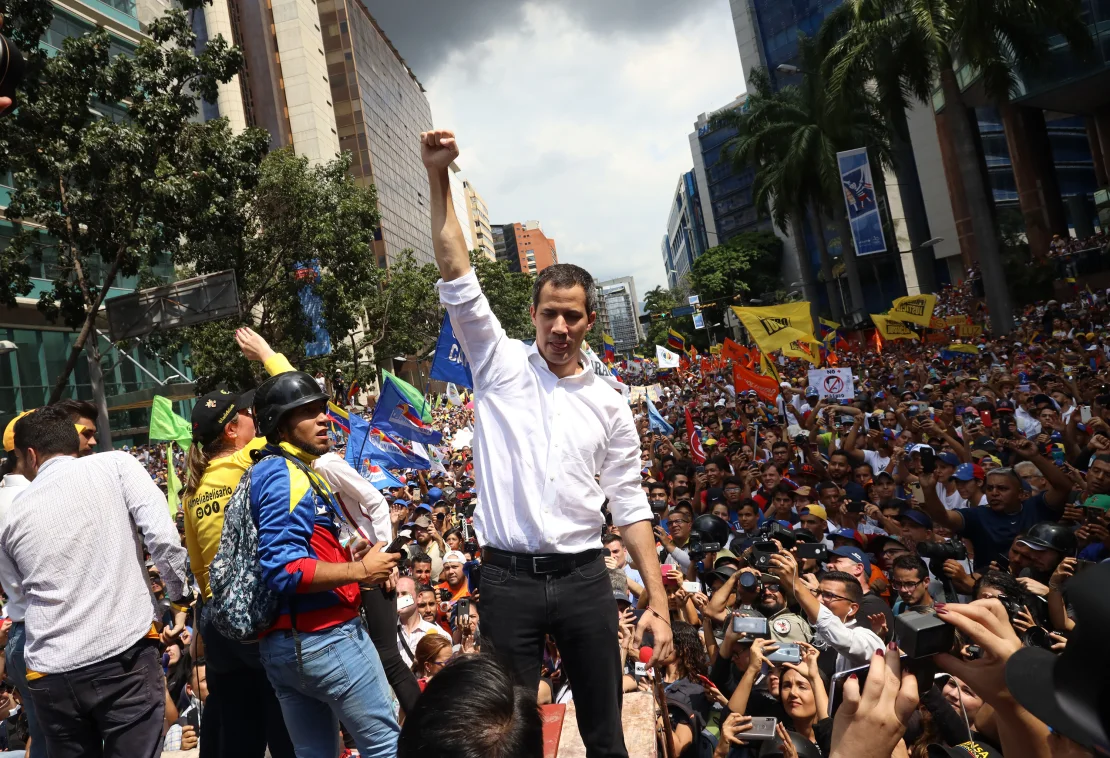Venezuelans have seen this movie before, but Maduro should beware. This time, the ending could be different
It happened in Caracas on June 9, 2016, when I was there to cover a series of violent protests that had broken out in Venezuela.
That sunny day, as our CNN team was walking towards the building that houses the National Assembly for interviews, we noticed a group of men heading the same way from the opposite side of the street.
“Hurry up!,” CNN en español’s correspondent in Caracas Osmary Hernández said. “I think the colectivos are up the street.” We all picked up our pace and breathed a sigh of relief when we made it to the building. Colectivos are armed groups that function like a street gang, but are closely affiliated with the socialist government and often do their dirty work.
Moments after we made it inside the building, Julio Borges, an opposition member of the assembly and its former president, arrived in bad shape. He had a bloody nose and said a group of opposition legislators like him had been attacked by colectivos as they were headed to the office of the national electoral authority. The month before, President Nicolás Maduro had declared a “constitutional state of emergency.”
Even before that tumultuous period, it had become abundantly clear that Maduro’s government had absolute control of all three branches of government as well as the the National Electoral Council (CNE).
And, as we had just witnessed, it also controlled the streets of Caracas. Maduro, now 61, is a former bus driver who became a Caracas metro system union leader and rose through the ranks. He is the handpicked successor of the late strongman Hugo Chávez, who ruled Venezuela from 1999 until his death in 2013.
A new wave of violence shook Venezuela once again in 2019. In January of that year, Juan Guaidó, then president of the National Assembly, had proclaimed himself interim president of Venezuela. The then-35-year-old Guaidó argued that he had the constitutional right to the presidency as leader of the assembly because Maduro, who had been sworn in only days before, was an illegitimate president.
Both the opposition and leaders of several countries in the region had called the previous year’s election a sham. Guaidó convinced 50 countries that he had a right to be president, including the United States.
By June 2019, when I returned to Caracas, Guaidó had already attempted a military uprising that almost succeeded on April 30, followed by weeks of violent clashes between protesters and security forces that left dozens dead.
The world started to pay close attention to Venezuela once again in the last few months as the country was getting ready to hold a new presidential election. Would Maduro allow the opposition to run a candidate of its choosing? Would this be a free, fair, and transparent election? Would the colectivos once again be used to intimidate voters as they had done in previous elections?
The first and second questions were answered in January when opposition leader María Corina Machado was barred by Venezuela’s highest court from running for president (or any other elected position) for 15 years over alleged financial irregularities. Machado had won more than 90% of the vote in last October’s opposition primary. She attracted large crowds everywhere she went, even though the government did everything possible to stop her, even persecuting those who rented sound systems to her campaign.
The third question was answered in the last hours of the election itself on Sunday when colectivos showed up at at least one polling center in Caracas and started beating up opposition sympathizers who had been asked by the leadership to keep an eye on ballot boxes in an effort to prevent tampering.
Those of us who have been following Venezuela for decades have seen this movie before: a “sham” election to justify Maduro’s staying in power. Democracy has been gradually weakening in Venezuela over the last 25 years since the charismatic socialist leader Chávez rose to power in 1999.
While Venezuelans and the world awaited results Sunday night, the country’s electoral authority delayed publication, alleging the system had been targeted by hackers operating from North Macedonia without showing any evidence. This was not surprising in a country where all three branches of government are in the hands of government loyalists, hundreds of opposition leaders have been imprisoned, and true democracy hasn’t existed in a generation.
“Is there anything different this time?” That’s the question I asked Michael Shifter, the former president of the Inter-American Dialogue and current professor of Latin American Politics at Georgetown University, who has been following Venezuelan politics for decades.
Shifter said the Maduro victory was a “blatant, massive and egregious fraud,” but the opposition managed to do something it had been unable to do before: uniting behind a single candidate and going to the polls in massive numbers.
“The alternative [to participating in the election] was taking themselves completely out of the political game, saying ‘we refuse to take part in this unfair and unjust election,’ but that would’ve left the opposition in a weaker position in practical and political terms” as it happened in 2018 when the opposition decided to boycott the whole process.
“I think the opposition learned that refusing to take part in elections was not helping their cause. They recognized that even when the elections weren’t free and fair, they needed to defeat Maduro on his terms, which they’ve done,” Shifter said.
Venezuela’s CNE declared Maduro the winner Monday saying he had won with 51.2% of the votes, with 80% of the ballots counted. His main rival, opposition candidate Edmundo González, had obtained 44.2% of the votes, according to the body.
Critics like former Bolivian President Jorge Fernando “Tuto” Quiroga, who was one of several former heads of state prevented from flying to Venezuela by its government as they tried to serve as observers, called the Maduro government a “desperate regime; an open, pure and hard tyranny that has chosen to steal the presidency staging a fraudulent coronation.” In an interview with CNN, he said that even the math didn’t add up when Venezuelan electoral authorities declared a winner with 80% of the vote counted.
“When you’re in first grade, you learn that 20 is more than seven,” Quiroga said. “The probability that [opposition presidential candidate] Edmundo [González] could’ve won was low, but still arithmetically possible,” at that point, he said, adding that prior to the election there were credible exit polls showing González was ahead by as much as 40 percent.
Just like 2016 and 2019, violence has returned to Venezuela. At least 11 people died during protests in Venezuela on Monday, according to the non-governmental organization Foro Penal on social media. Venezuelan authorities say more than 700 people were detained in the protests. The Venezuelan opposition political party Voluntad Popular said Tuesday that its leader Freddy Superlano has been kidnapped.
Unlike the 2018 election, Shifter says, this time the opposition “knows they won, and the regime knows they won.” The question now is how long the governing coalition that includes not only the socialists, but the armed forces can hold, Shifter said.
If that coalition becomes “divided and weaker, the armed forces may say ‘this ship is sinking and we don’t want to go down with it,’” Shifter said.
SOURCE: CNN
1 year ago
Share
Add Comment




